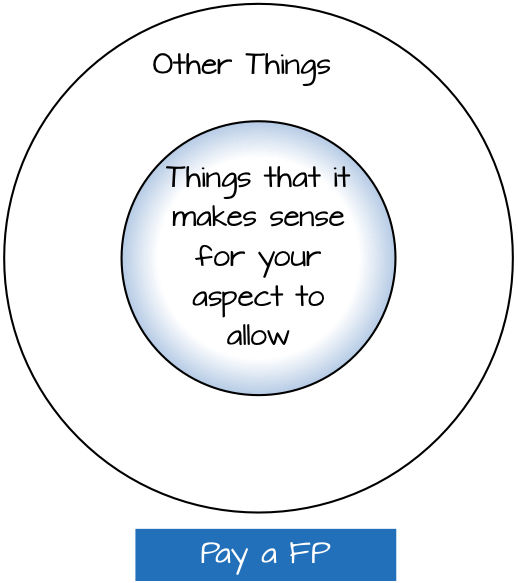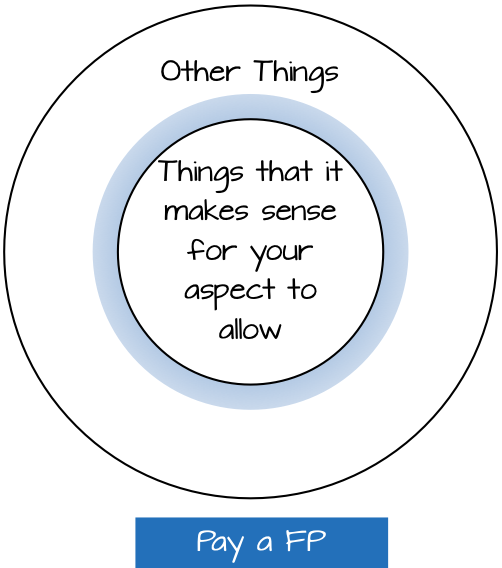When someone asks if their aspect allows them to do something (or generally tries to act upon ‘aspects are alwasy true’ thinking), the answer is usually obvious, but there are fuzzy border zones, and this create some confusion.
You can resolve that confusion by spending a fate point, but it’s not always clear when that threshold is hit.
Some people think that this should be resolved conservative, with things that *might* be within bounds demanding a FP.
But me, I’ve always opted for a more open policy – the FP is necessary only for stretching the aspect beyond expectations.
In reality, it’s not always clear cut. You and I may disagree on where that line is. And in large part, this is why I feel that as a GM you will rarely go wrong with the more generous interpretation. If the player constrains themself, then you aren’t creating a problem, but if you end up constraining a player, that’s fun-corroding.
On the off chance that you need an example, let’s say I have the Hell on Wheels aspect and two questions come up:
1. Do I know how to hot wire a car?
2. Do I know a car thief in this town?
Is #1 covered by the aspect as written? Mmmmmaybe. By conservative interpretation, the player would need to spend a FP to be able to do it (however that is handled), by a liberal interpretation, it’s in bounds.
Is #2 covered by the aspect as written. Probably not, but since you can make the case that it’s in the same domain, then it becomes possible with a Fate Point under a liberal interpretation (and probably impossible under a conservative one).
This is not to say that my answer is the right one. Both approaches have their place, and there are a lot of nuanced issues of genre, taste and tone that they fold into. But what *is* important is that everyone at the table have the *same* understanding of how aspects are being interpreted.
